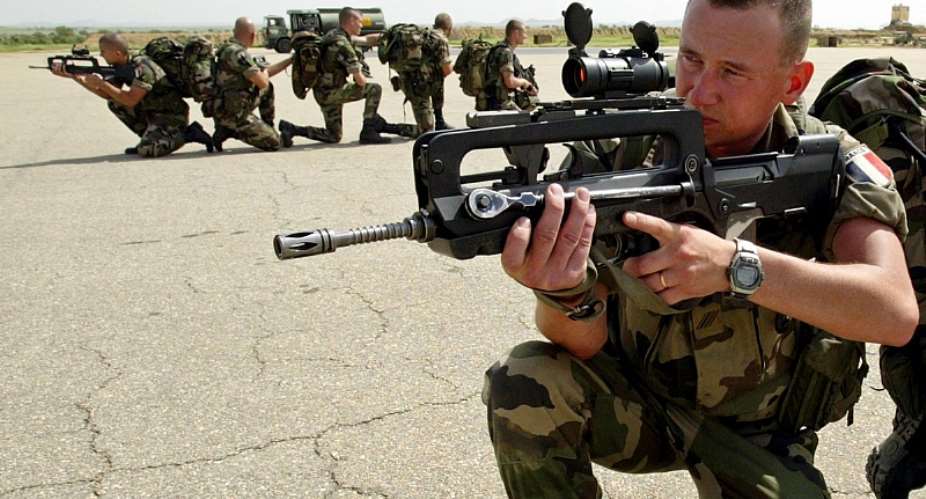As a uniquely bellicose nation, ancient Rome constantly lusted after the adrenaline rush of war and its perilous glamour. Unsurprisingly so that, Roman legionaries became the world’s first self-anointed professional soldiers. Within the imperial army ranks indeed, berserks, single individual warriors, and deadly elite regiments as well took on the highest pride in carrying out risky military missions in order to secure the overstretched imperial frontiers. Among those deadly elite regiments, two forces made history to this day.
The Roman elite Praetorian Guards created in 27 BC and composed of 4.500 troops stationed throughout Rome and its surrounding towns. The second elite fighting forces were the Batavian Auxiliary Cohorts. As the best and fearsome Roman auxiliary elite shock troops, the First Batavian cohorts played a key role during the invasion of Britain in AD 43.
Remarkably enough, and beyond its warmongering instincts, Rome crafted its imperial expansion more as a function of changing relationship with individual nations than by way of controlling territories. Dominion for Rome was first and foremost over people, not territory. In this regard, Rome’s dispatched special forces on some distant frontiers aimed at achieving global security and imperial dominion through permanent engagement.
Strangely enough, today’s international security policy mantra seems a recycled Roman military franchise for sale. By sealing a strong love affair between special forces and drones, the global war on terror has elected the 21st century’s new military power. Laying to rest the large conventional military power of the past, outposts of special forces have been taking position around the globe.
The US special forces have been operating in more than 100 countries around the globe. Paris had significantly salvaged its old African empire through its war footing operations on the continent. The dispatching of at least 10.000 French legionaries across the continent staged a strategic and invigorated French military comeback on its old dominion. In the Sahel region alone, the French military’s African footprint has been flexing muscle with 3.000 special forces ready to intervene. During the deadly November 2015 terrorist attack on the Radisson Blu Hotel in Bamako and the terrorist carnage at the Splendid Hotel on 15 January, 2016 in Ouagadougou, French special forces were on the ground to disrupt militants threat.
Admiral William McRaven has never been so accurate a military visionaire than when he confessed in 2014 that, we have been moving from a state of perpetual war to perpetual engagement. The lurch from dreams of economic development to security nightmares through tactical victimization of local populations by militants groups has rushed Africa into the age of dirty wars. The empire has found its new African clothes: the build up of elite special forces across the continent as a cure for terrorism.
Narcisse Jean Alcide Nana, is the author of Virus Militarisés (Edilivre, Paris, 2015)
Bibliography
-
Nico Roymans, Ethnic Identity and Imperial Power: The Batavians in the Early Roman Empire (Amsterdam University Press, Amsterdam, 2005)
-
Stephanie Sanok Kostro & Meredith Boyle, “French Counterterrorism in the Sahel: Implications for U.S. Policy”, in Center for Strategic and International Studies, February 4, 2014





 Lay KPMG audit report on SML-GRA contract before Parliament – Isaac Adongo tells...
Lay KPMG audit report on SML-GRA contract before Parliament – Isaac Adongo tells...
 Supervisor remanded for stabbing businessman with broken bottle and screwdriver
Supervisor remanded for stabbing businessman with broken bottle and screwdriver
 NDC watching EC and NPP closely on Returning Officer recruitment — Omane Boamah
NDC watching EC and NPP closely on Returning Officer recruitment — Omane Boamah
 Your decision to contest for president again is pathetic – Annoh-Dompreh blasts ...
Your decision to contest for president again is pathetic – Annoh-Dompreh blasts ...
 Election 2024: Security agencies ready to keep peace and secure the country — IG...
Election 2024: Security agencies ready to keep peace and secure the country — IG...
 People no longer place value in public basic schools; new uniforms, painting wil...
People no longer place value in public basic schools; new uniforms, painting wil...
 'Comedian' Paul Adom Otchere needs help – Sulemana Braimah
'Comedian' Paul Adom Otchere needs help – Sulemana Braimah
 Ejisu by-election: Only 33% of voters can be swayed by inducement — Global InfoA...
Ejisu by-election: Only 33% of voters can be swayed by inducement — Global InfoA...
 Minority will expose the beneficial owners of SML, recover funds paid to company...
Minority will expose the beneficial owners of SML, recover funds paid to company...
 Prof. Opoku-Agyemang has ‘decapitated’ the NPP’s strategies; don’t take them ser...
Prof. Opoku-Agyemang has ‘decapitated’ the NPP’s strategies; don’t take them ser...
